How to Get Pearly White Teeth? All You Need to Know
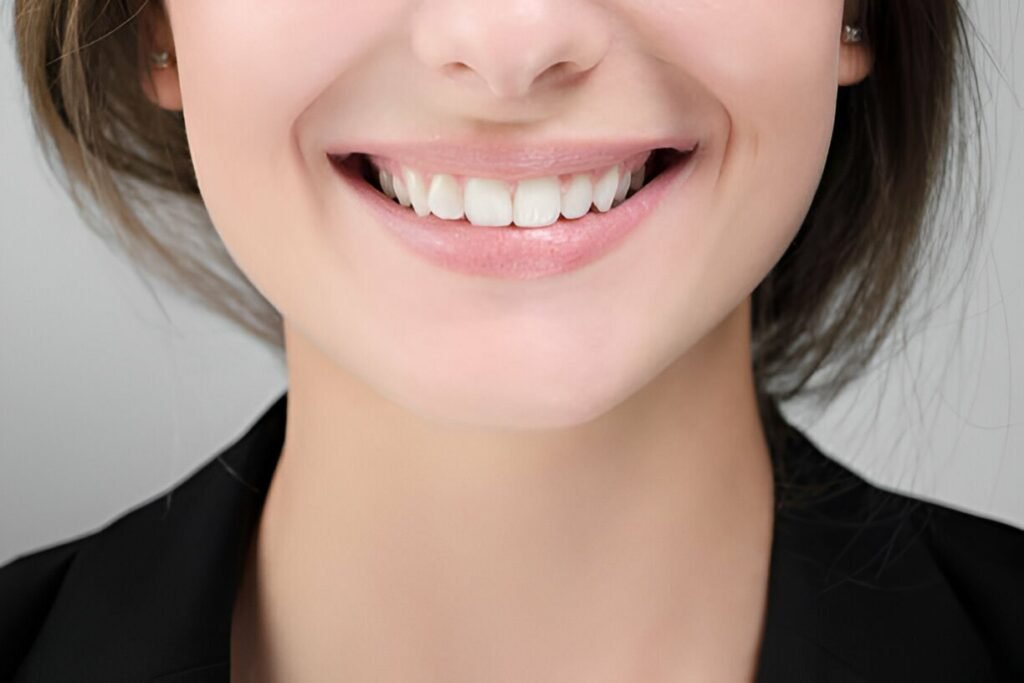
A bright, pearly white smile can boost your confidence and leave a lasting impression. Achieving and maintaining sparkling teeth isn’t as challenging as it may seem. In this guide, we’ll walk you through the steps to get those dazzling pearly whites you’ve always wanted. From daily dental care tips to special whitening techniques and professional solutions, we’ll cover it all. So, if you’re ready to unlock the secrets of a beautiful smile, read on! Understanding Teeth Discoloration Teeth can lose their natural whiteness due to various factors. Some common causes of teeth discoloration include: How Long After Home Teeth Whitening Can I Drink Tea? Daily Dental Care for Whiter Teeth Maintaining pearly white teeth starts with a good daily dental care routine. Here’s what you need to do: Is Teeth Whitening Permanent? Dietary Choices for Whiter Teeth Your diet plays a significant role in the whiteness of your teeth: Special Whitening Techniques If you’re looking for extra whitening power, consider these techniques: Should I Brush My Teeth Before Using Whitening Strips? Professional Solutions For more significant improvements, consult a dental professional: Maintaining Your Pearly Whites Once you achieve your desired level of whiteness, here’s how to keep it: Does Teeth Whitening Damage Enamel? Common Myths About Teeth Whitening It’s important to debunk some common myths about teeth whitening: Conclusion Achieving and maintaining pearly white teeth is a combination of daily care, dietary choices, and, when needed, professional treatments. By following these simple yet effective tips, you can enjoy a dazzling smile that leaves a lasting impression. Remember, consistency is key. Keep smiling bright and take pride in your beautiful, healthy teeth! What Not to Eat After Teeth Whitening? Book Your Consultation Today If you’re looking for a reliable private dentist in Manchester, Moston Dental Practice offers professional teeth whitening solutions tailored to your needs. Our experienced team is here to help you achieve and maintain a bright, confident smile. Contact Moston Dental Practice today to schedule your consultation and take the first step towards your dream smile. Visit our website or call us to book an appointment.
How Long After Home Teeth Whitening Can I Drink Tea?

Teeth whitening at home has become a popular way to brighten your smile. If you’re a tea lover, you might be wondering how soon you can enjoy a cuppa after whitening your teeth. Here’s a detailed guide to help you keep that smile gleaming without delaying your tea time too much. Understanding Home Teeth Whitening Home teeth whitening kits are a fantastic option for anyone looking to enhance their smile from the comfort of their own home. These kits typically use peroxide-based gels or strips that work by breaking down stains on your teeth, making them appear whiter. Why Wait Before Drinking Tea? Right after you’ve whitened your teeth, they are temporarily more open to stains. The whitening process opens up the pores in your enamel, much like pores on your skin, making it easier for colours from foods and drinks to seep in. Tea, with its deep colours and tannins, can be a real culprit for staining. How Long Does Teeth Whitening Last? The Perfect Timing So, how long should you wait? It’s wise to wait at least 48 hours before you dive into drinking tea. This gives your enamel enough time to settle down and close up those pores. Waiting a bit can make a big difference in keeping your teeth white. Choosing the Right Tea Not all teas are equal when it comes to staining your teeth. Herbal and green teas are much kinder to your pearly whites than black tea. They have fewer tannins, which are the components that tend to stick to and stain your teeth. Tips for Tea Lovers Who Can’t Wait If waiting for 48 hours sounds like a bit too much, here are a few tips to help you enjoy your tea without risking stains: How Much Does Teeth Whitening Cost? Maintaining Your White Smile Keeping your teeth white doesn’t stop at avoiding tea right after whitening. Regular brushing and flossing are key. Also, consider using a whitening toothpaste to help maintain your results. Regular check-ups with your dentist ensure any potential problems are caught early. FAQ on Tea and Teeth Whitening Can herbal teas stain teeth Herbal teas generally cause less staining than black tea, but they can still have some effect if consumed in large amounts. What about coffee? Coffee, like black tea, is a strong stainer. It’s best to avoid coffee as well during the first 48 hours after whitening. Can I drink cold tea? The temperature of the tea doesn’t affect its staining ability. Whether it’s hot or cold, tea can stain your teeth. What Not to Eat After Teeth Whitening? Conclusion To wrap it up, after whitening your teeth, give them a little break before hitting the tea. Waiting 48 hours can help ensure your teeth stay whiter, longer. And when you do start sipping again, choosing the right kind of tea and following a few simple tips can make all the difference. So, here’s to enjoying your tea and keeping that bright smile! By following these guidelines, you can enjoy your favourite brew without compromising your newly whitened teeth. Remember, a little patience goes a long way in maintaining that sparkly smile! Ready for a Brighter Smile? If you’re considering home teeth whitening or need more advice on maintaining your dental health, Moston Dental Practice is here to help. As a leading NHS dentist in Manchester, we provide expert care and guidance to ensure your smile stays bright and healthy. Contact us today to schedule your consultation and learn more about our services. Cheers to a dazzling, tea-friendly grin with Moston Dental Practice! Does Teeth Whitening Damage Enamel?
Is Teeth Whitening Permanent? Complete Information
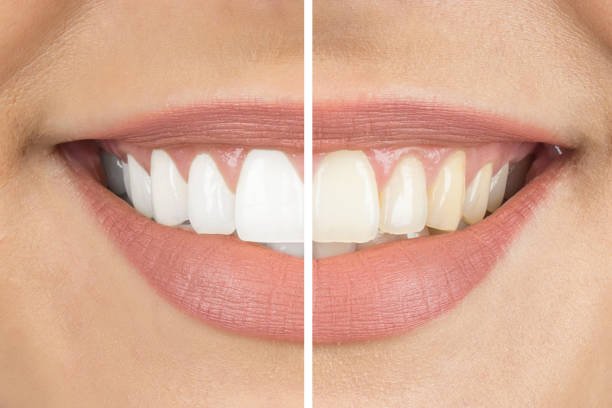
Teeth whitening has become a popular way to achieve a brighter smile. Many people want to know if the results will last forever. In this article, we will explore if teeth whitening is permanent. We will also look at what factors can affect how long your pearly whites stay white. What Is Teeth Whitening? Teeth whitening is a cosmetic procedure that lightens the colour of your teeth. It can remove stains and discolouration. There are various methods available, such as in-office treatments, at-home kits, and natural remedies. Each method has its own pros and cons. Should I Brush My Teeth Before Using Whitening Strips? How Does Teeth Whitening Work? Teeth whitening usually involves bleaching agents like hydrogen peroxide or carbamide peroxide. These agents break down stains into smaller pieces. This makes the colour less concentrated and your teeth brighter. Some methods also use lights or lasers to speed up the process. Temporary vs. Permanent Results Why Teeth Whitening Is Not Permanent Teeth whitening is not a permanent solution. Over time, your teeth can become stained again due to various factors. Foods and drinks, like coffee, tea, and red wine, can cause staining. Smoking and certain medications can also lead to discolouration. The Longevity of Whitening Results The duration of your whitening results depends on your habits and the method used. In-office treatments can last up to a year, while at-home kits might last for a few months. Regular touch-ups can help maintain the results for a longer period. Does Teeth Whitening Damage Enamel? Factors That Affect Whitening Longevity Diet and Lifestyle Choices Your diet and lifestyle choices play a big role in how long your teeth stay white. Avoiding foods and drinks that stain, and quitting smoking can help maintain your bright smile. Brushing your teeth twice a day and flossing regularly also helps. Oral Hygiene Routine A good oral hygiene routine is crucial for maintaining whitening results. Use a whitening toothpaste and mouthwash to keep stains at bay. Regular dental check-ups and cleanings can also prevent discolouration. Type of Whitening Treatment The type of whitening treatment you choose affects the longevity of the results. In-office treatments usually last longer than at-home kits. Professional treatments are more potent and can penetrate deeper stains. What Not to Eat After Teeth Whitening? How to Prolong Whitening Results Avoid Staining Foods and Drinks To prolong your whitening results, try to avoid foods and drinks that stain your teeth. These include coffee, tea, red wine, and dark berries. If you do consume them, rinse your mouth with water afterward. Maintain a Good Oral Hygiene Routine Brush your teeth twice a day and floss daily. Use a whitening toothpaste and mouthwash. Visit your dentist regularly for check-ups and cleanings. These habits can help keep your teeth white for a longer time. Use Touch-Up Treatments Consider using touch-up treatments to maintain your whitening results. There are many options available, from at-home kits to professional treatments. Discuss with your dentist to find the best option for you. How Much Does Teeth Whitening Cost? Myths About Teeth Whitening Whitening Damages Your Teeth Many people believe that teeth whitening damages your teeth. This is not true if done correctly. Professional treatments are safe and effective. Overuse of at-home kits, however, can cause sensitivity and damage. All Teeth Can Be Whitened Not all teeth can be whitened effectively. Whitening treatments work best on natural teeth. If you have crowns, veneers, or fillings, they will not respond to whitening agents. It is best to consult with your dentist before starting any treatment. Whitening Is Permanent As discussed earlier, whitening is not permanent. Your teeth can become stained again over time. Regular maintenance and good habits are key to keeping your smile bright. How Long Does Teeth Whitening Last? Conclusion Teeth whitening can give you a brighter, more confident smile. However, it is not a permanent solution. The length of your results depends on many factors. These include your diet, lifestyle, and oral hygiene. By following good habits and using touch-up treatments, you can enjoy a whiter smile for a longer time. Remember, you must ask your dentist before starting whitening. They can recommend the best options for your teeth. They also ensure the procedure is safe and works well. In conclusion, while teeth whitening is not permanent, with proper care and maintenance, you can keep your smile bright and beautiful for a long time. Ready for a Brighter Smile? If you are considering teeth whitening, visit Moston Dental Practice. Our professional team, including your trusted NHS dentist in Manchester, offers safe and effective whitening treatments tailored to your needs. Book an appointment today and take the first step towards a brighter, more confident smile. Contact Moston Dental Practice now and let us help you achieve the smile you’ve always wanted.
Should I Brush My Teeth Before Using Whitening Strips?
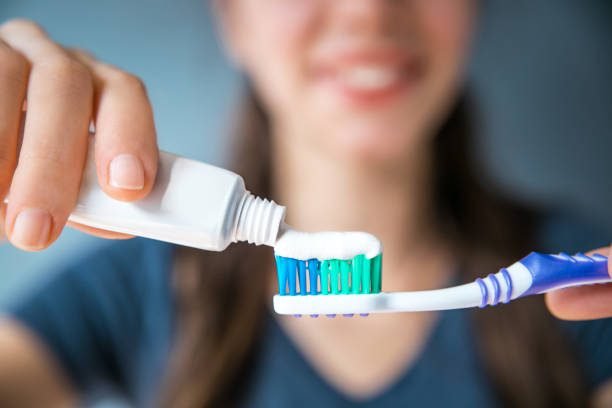
Teeth whitening has become very popular. Many people want a bright, white smile. Teeth Whitening strips are an easy and effective way to achieve this. But there is often confusion about the correct use of these strips. One common question is: should you brush your teeth before using whitening strips? In this article, we will explore the answer to this question and provide some helpful tips for using whitening strips. What Are Whitening Strips? Whitening strips are thin, flexible pieces of plastic coated with a whitening gel. The gel usually contains hydrogen peroxide or carbamide peroxide. These chemicals help to remove stains from the surface of your teeth. You apply the strips to your teeth and leave them on for a specified amount of time. The result is a whiter, brighter smile. Does Teeth Whitening Damage Enamel? Why Brushing Matters Brushing your teeth is an essential part of oral hygiene. It helps to remove plaque, food particles, and bacteria from your teeth and gums. Brushing also prevents tooth decay and gum disease. When using whitening strips, it is crucial to start with clean teeth. This ensures the whitening gel can work effectively. Brushing Before Whitening Strips: The Pros There are several benefits to brushing your teeth before using whitening strips: What Not to Eat After Teeth Whitening? Brushing Before Whitening Strips: The Cons While there are many benefits to brushing before using whitening strips, there are also some potential drawbacks: Tips for Using Whitening Strips To get the best results from your whitening strips, follow these tips: How Much Does Teeth Whitening Cost? Alternative Approaches If you are concerned about brushing before using whitening strips, consider these other ways: Conclusion In conclusion, brushing your teeth before using whitening strips can have several benefits. It helps to ensure better contact, even whitening, and fresh breath. However, it is important to be mindful of drawbacks. These include tooth sensitivity and gum irritation. By following the tips provided and reading the instructions on your whitening strips, you can achieve a bright, white smile safely and effectively. How Long Does Teeth Whitening Last? Visit Moston Dental Practice for Expert Teeth Whitening Advice For advice on teeth whitening, visit Moston Dental Practice. They also help with keeping a bright smile. Our team of experts is here to help you achieve your dental goals. Do you need help using whitening strips? Or, do you want to explore other whitening options? We are ready to help you. Contact NHS dentist in Manchester today to book your appointment. It will be the first step to a healthier, whiter smile. Frequently Asked Questions How often can I use whitening strips? Most whitening strips can be used daily for a specified period, usually 1-2 weeks. Follow the instructions on the packaging for the best results. Are whitening strips safe for my teeth? Yes, when used as directed, whitening strips are safe. They contain mild bleaching agents and are designed to minimise sensitivity and enamel damage. Can I eat or drink after using whitening strips? It’s best to avoid eating or drinking for at least 30 minutes after using whitening strips to maximise their effectiveness and prevent re-staining. Do whitening strips work on all types of stains? Whitening strips are effective on surface stains caused by food, drink, and smoking. However, they may not work as well on deeper, intrinsic stains. What should I do if my teeth become sensitive? If you experience sensitivity, use the strips less frequently or take a break for a few days. Switching to a toothpaste for sensitive teeth can also help.
Does Teeth Whitening Damage Enamel? Your Guide to Safe Smile Enhancements
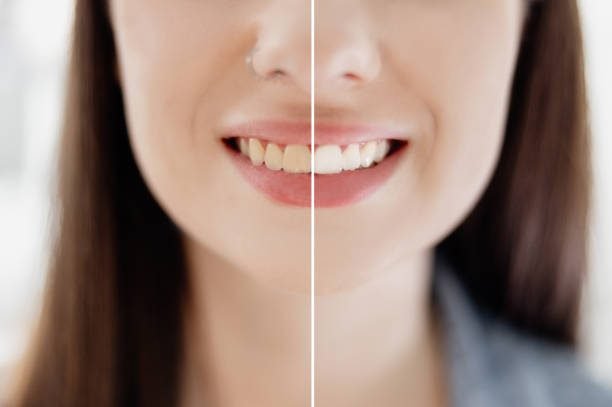
Many of us dream of sporting a sparkling, movie-star smile. But, as we consider teeth whitening, a pressing question often comes up: “Does it harm enamel?” Let’s dive into this topic with clear explanations and expert insights. This will let you pursue a brighter smile without harming your teeth. Understanding Tooth Enamel First off, what exactly is tooth enamel? Simply put, it’s the hard, protective outer layer of your teeth, shielding them from daily wear and tear. It’s incredibly tough but not indestructible. That’s why it’s vital to approach teeth whitening with care to keep this barrier strong. How Teeth Whitening Works Teeth whitening treatments typically use a form of peroxide. This agent breaks down molecules that cause stains on teeth. This process makes teeth look whiter. Now, the key question: Does this process harm the protective enamel? The answer largely depends on the method and frequency of whitening. What Not to Eat After Teeth Whitening? The Impact on Enamel Current studies reassure us that, when used correctly, approved teeth whiteners do not damage enamel. The products are approved by leading dental health groups. However, misuse or overuse can indeed lead to enamel erosion over time. So, follow directions exactly. First, consult a dental professional before starting any treatment. Choosing the Right Whitening Method Whitening options are available. They range from over-the-counter kits to professional treatments at the dentist’s office. How do you choose? Here’s a simple guideline: How Much Does Teeth Whitening Cost? Maintaining Enamel Health During Whitening To protect your enamel during and after whitening, consider these tips: What About Sensitivity? It’s common to experience some sensitivity during and after whitening treatments. This doesn’t necessarily mean harm to the enamel, but it’s something to watch. If sensitivity occurs, it often subsides after a few days. Meanwhile, using toothpaste designed for sensitive teeth can help. How Long Does Teeth Whitening Last? Alternatives to Chemical Whitening If you’re wary about chemical treatments, there are other ways to enhance your smile: When to Avoid Whitening Not everyone is a suitable candidate for whitening. Avoid whitening if your enamel is thin or you have dental diseases. Also, avoid it if you are under 16, pregnant, or breastfeeding. Wrapping Up In conclusion, whitening teeth does not have to harm your enamel. You can avoid harm by choosing the right method and using it responsibly. Always seek professional advice before starting any whitening treatment. This will ensure it’s right for your dental health. With the right care, you can achieve that dazzling smile safely! Ready to Brighten Your Smile Safely? Are you considering teeth whitening? Do you want to ensure it’s done safely without harming your enamel? Your NHS dentist in Manchester at Moston Dental Practice is here to help. Our team of pros is experienced. They are dedicated to giving you the safest, best whitening treatments. The treatments will be tailored to your dental needs. Call us today or visit our practice to schedule a consultation. At Moston Dental Practice, we put your dental health first. We are committed to helping you get a brilliantly white, healthy smile. And, we’ll do it in the safest way. Take the first step toward a dazzling smile with confidence. Contact your Moston Dental Practice now!
What Not to Eat After Teeth Whitening? Complete Information
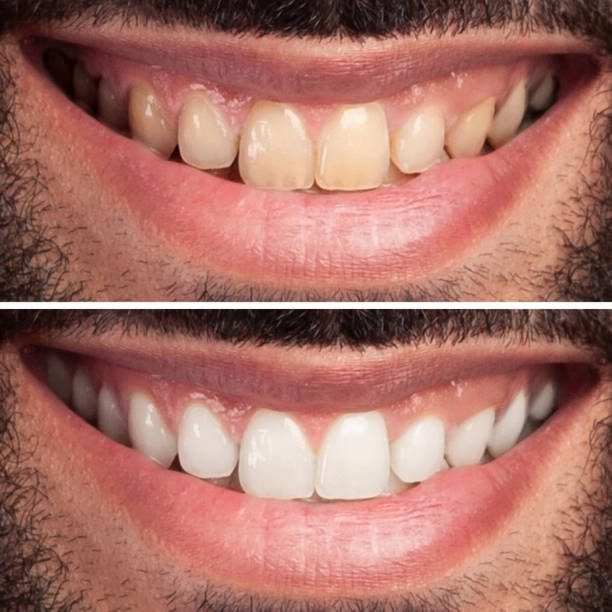
Teeth whitening is a popular procedure that can brighten your smile and boost your confidence. However, post-whitening care is crucial to maintain those dazzling results. Whitening makes teeth more porous and sensitive. So, they are more susceptible to staining. To keep your smile bright, it’s essential to avoid certain foods and beverages. This guide will help you understand what not to eat after teeth whitening. It will also offer better options. Understanding Teeth Whitening Before listing the foods to avoid. It’s helpful to understand why some can harm your newly whitened teeth. During the whitening process, your enamel is temporarily weakened. This makes your teeth more porous and vulnerable to staining and sensitivity. Avoid some foods for at least 48 hours after treatment. This can protect your enamel and keep your teeth white. The Three Culprits: Chromogens, Tannins, and Acids Three main factors contribute to tooth staining: chromogens, tannins, and acids. Chromogens are pigmented compounds that adhere to tooth enamel. Tannins, found in beverages like tea and coffee, enhance chromogen adherence. Acids erode enamel, making teeth more susceptible to stains. Avoiding foods and drinks containing these culprits is crucial after whitening. How Much Does Teeth Whitening Cost? Foods and Beverages to Avoid 1. Dark-Coloured Beverages Coffee and Tea: Both beverages contain tannins that can stain your teeth. If you must drink them, use a straw and rinse your mouth with water immediately afterward. Red and White Wine: Red wine has dark pigments and acids that can stain teeth. White wine, though lighter, is acidic and can weaken enamel. Soda and Fizzy Drinks: These drinks are high in sugar and acids, which can erode enamel and cause stains. Avoid them for at least 48 hours after whitening. 2. Dark-Coloured Foods Dark Fruits and Vegetables: Avoid blackberries, blueberries, cherries, grapes, and pomegranates. Also, avoid beets and dark leafy greens like spinach. These foods contain pigments that can stain your teeth. Tomatoes and Tomato Sauces: Tomatoes are highly acidic and have dark pigments. Avoid tomato-based sauces, ketchup, and similar foods. Dark Sauces and Condiments: Soy sauce, balsamic vinegar, and other dark sauces can stain teeth. If it can stain a white t-shirt, it can stain your teeth. 3. Acidic Foods and Beverages Citrus Fruits: Oranges, lemons, limes, and grapefruits are highly acidic and can erode enamel, making your teeth more vulnerable to stains. Fruit Juices: Avoid dark-coloured and acidic juices like grape juice, cranberry juice, and orange juice. They can weaken enamel and stain teeth. Pickled Foods: Pickles and other pickled foods are acidic and can affect your enamel. Avoid them after teeth whitening. How Long Does Teeth Whitening Last? 4. Sugary Treats Sugary Foods: Sugary foods can cause tooth decay and discoloration. They include cakes, cookies, candy, chocolate, and ice cream. This is especially true when your teeth are sensitive after whitening. Sweets with Dyes: Avoid sweets with artificial or natural dyes. This includes popsicles and certain candies. They can stain your teeth. 5. Miscellaneous Processed Meats: Some processed meats are acidic and can stain your teeth. It’s best to avoid them after whitening. Tobacco: Smoking can cause severe staining and damage to your teeth. Avoid tobacco products entirely for a brighter smile. Safe Foods to Eat Instead of dark and acidic foods, opt for lighter, less pigmented options. This “white diet” helps maintain your bright smile. Chicken and Turkey: These are light-coloured, healthy, and free from staining pigments. Fish: White fish like cod or haddock is safe to eat. Avoid darker fish varieties. Rice and Pasta: These are excellent choices, but avoid dark sauces. White Cheese: This is a great option, but pair it with light-coloured foods. Egg Whites: Egg whites are safe, but avoid the yolk as it contains colour. Potatoes: Peeled potatoes and mashed potatoes are good options. White Bread: Remove the crust to ensure it’s safe for your teeth. Bananas: These are light-coloured and won’t stain your teeth. Yoghurt: Opt for plain white yoghurt without added colour. Porridge: Enjoy porridge with milk, and if you need sweetness, use a sweetener instead of sugar. Long-term Tips You must follow the white diet for the first 48 hours. But, to keep your teeth white for the long term, you must keep up good oral hygiene. Brush and floss regularly, and visit your dentist for regular cleanings. Drink plenty of water and consider using a straw for any staining beverages you can’t avoid. Conclusion Teeth whitening can give you a beautiful, bright smile. But, you must care for your teeth after to keep the results. Avoid dark-coloured, acidic, and sugary foods and beverages for at least 48 hours. Stick to lighter, less pigmented options to keep your teeth white and healthy. With these tips, you can enjoy your dazzling smile for a long time. Keep Your Smile Bright with Moston Dental Practice At Moston Dental Practice, we are dedicated to helping you achieve and maintain a radiant smile. As a trusted NHS dentist in Manchester, our professional teeth whitening services provide stunning results, and we offer expert advice on post-whitening care. To learn more about our services or to schedule an appointment, visit our website or call us today. Let us help you keep your smile bright and beautiful!
How Much Does Teeth Whitening Cost? Complete Information
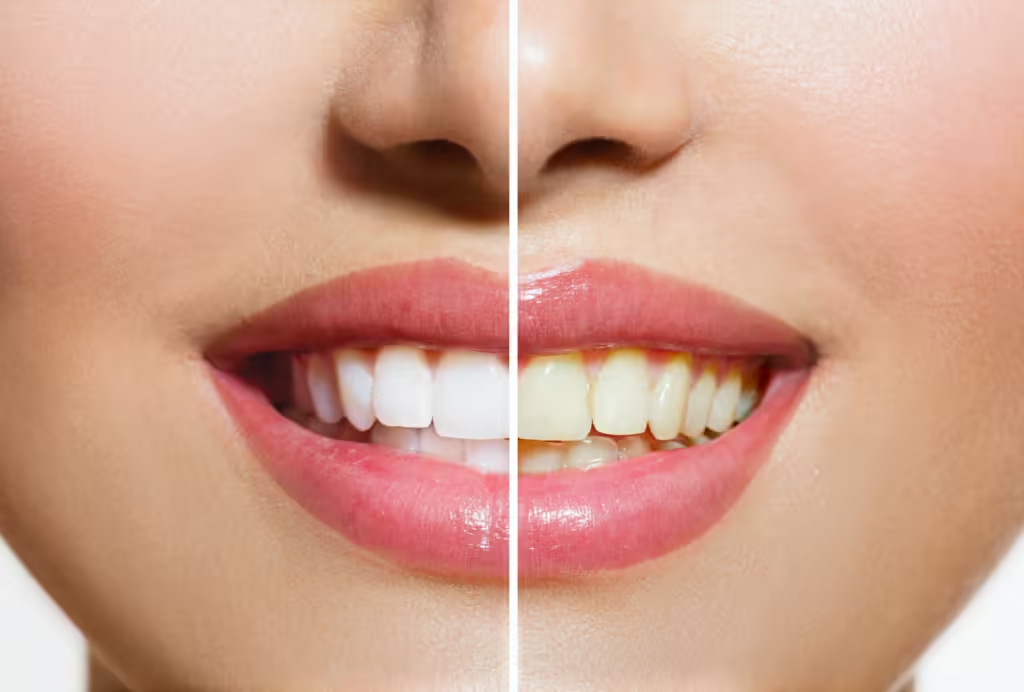
Thinking of adding a bit of sparkle to your smile with teeth whitening? You’re in good company. Across the UK, many people are choosing teeth whitening treatment. They see it as their go-to way to brighten their smiles. In this guide, we’ll look at the costs of this popular cosmetic treatment. What is Teeth Whitening? First things first, let’s understand what teeth whitening really entails. It’s a cosmetic dental procedure designed to lighten the colour of your teeth. This process helps remove many stains and discoloration. It’s a great choice for those who want to whiten their smile. They want to do so without invasive procedures. The Various Costs of Teeth Whitening The cost of teeth whitening in the UK depends on many factors. These include the method you choose, where you live, and how discoloured your teeth are. Here’s a detailed look at the main options available: 1. Professional In-Office Whitening This method is the gold standard of teeth whitening. A dental professional performs it and it gives the most noticeable results. In-office whitening costs £200 to £600. Higher prices are common in upscale areas, especially in central London. 2. Take-Home Whitening Kits from Your Dentist These kits are cheaper than in-office whitening. A dentist provides you with a custom tray and whitening gel to use at home. These kits usually cost £200 to £400. They offer a great mix of convenience and effectiveness. 3. Over-the-Counter Whitening Products Some people prefer a do-it-yourself approach. They can use over-the-counter products like whitening toothpastes and strips. These are the cheapest options. Prices start at £5 for basic whitening toothpaste and go up to about £50 for more advanced whitening kits. How Long Does Teeth Whitening Last? Additional Costs to Keep in Mind It’s important to budget not just for the initial treatment but also for any additional costs: Is Teeth Whitening Truly Worth the Investment? For many, the benefits of teeth whitening go beyond just aesthetic enhancements. A brighter smile can boost your confidence. It can also have a positive effect in both personal and professional settings. The initial cost may seem high. But, the boost to your self-esteem and the joy of a sparkling smile are often worth it. What Factors Affect the Cost of Teeth Whitening? Several factors can influence how much you end up paying for teeth whitening: Choose Moston Dental Practice for Your Teeth Whitening At Moston Dental Practice, we’re dedicated to helping you achieve the brightest smile. Our experienced team offers a range of teeth whitening options tailored to meet your needs and goals. You may want an in-office treatment for quick results. Or, you may prefer a take-home kit. We’re here to guide you at every step. Ready to Transform Your Smile? Don’t wait any longer to get the smile you’ve always wanted. Contact Moston Dental Practice today to schedule your consultation. Our friendly staff is ready to help you. They will give personalised advice and effective treatments. Visit our website or call us to learn more about our services and how we can help you achieve a dazzling smile. Remember, a brighter smile can be more than just a dream. With Moston Dental Practice, it can be your reality. Let us help you make a lasting impression with a smile that shines! Frequently Asked Questions What is the average duration of teeth whitening effects? Typically, the effects last 6 months to 2 years. The exact time depends on lifestyle habits, like diet, smoking, and oral hygiene. Does teeth whitening cause permanent tooth sensitivity? No, any sensitivity experienced post-whitening is usually temporary. However, if sensitivity persists, consult your dentist. Can teeth whitening damage enamel? When performed professionally, teeth whitening is safe and does not damage tooth enamel. Is teeth whitening suitable for everyone? Teeth whitening is fine for most adults. But, it’s not recommended for children under 18, pregnant women, or those with gum disease. How often can I undergo professional teeth whitening? You can safely do professional teeth whitening once a year. It keeps brightness without harming tooth health.
How Long Does Teeth Whitening Last?
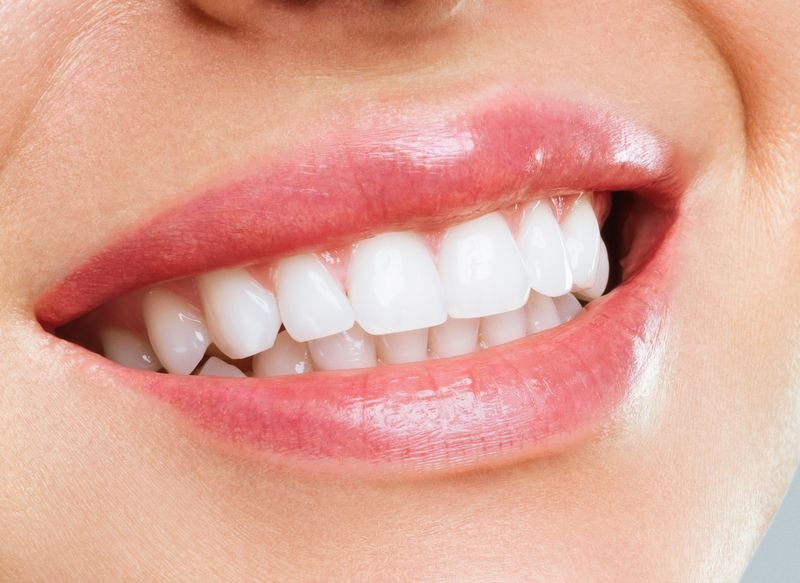
Are you considering teeth whitening to brighten your smile? It’s a popular choice for many, offering a boost in confidence and a dazzling appearance. However, one common question often comes up: “How long does teeth whitening last?” Let’s delve into this topic and explore various factors that determine the longevity of your pearly whites. Understanding Teeth Whitening Teeth whitening is a cosmetic procedure. It is designed to remove stains and improve your teeth’s color. This can be done in several ways. These include treatments at a dentist’s office and at-home kits. The results can make a significant difference, but they are not permanent. Knowing what affects how long these effects last can help you keep a brighter smile. Factors Influencing the Longevity of Whitened Teeth 1. The Method Used: The type of whitening method you choose has a substantial impact. Professional treatments usually offer the longest-lasting results. They can maintain brightness for up to three years. At-home kits are convenient, but their results tend to be short-lived. They usually last from a few months to a year. 2. Your Dietary Habits: What you eat and drink plays a crucial role. Foods and beverages like coffee, tea, red wine, and some curries can stain teeth more rapidly. If these are staples in your diet, your teeth might begin to discolour sooner. 3. Oral Hygiene: Regular brushing, flossing, and using mouthwash are key. They prolong the effects of teeth whitening. Good oral hygiene helps to remove staining substances. It keeps your teeth looking their best. 4. Tobacco Use: Tobacco use can shorten your whitening results. It makes stains form faster. It includes smoking or using tobacco products. 5. Natural Teeth Colour: The inherent colour of your teeth also plays a role. Naturally yellower teeth show more dramatic results after whitening. But, they may also need more frequent treatments to stay white. Maximising the Duration of Your Whitened Teeth To keep your smile sparkling, consider the following tips: – Mind Your Diet: Try to avoid or limit foods and drinks that stain your teeth. If you do indulge, brush your teeth soon after eating them. Or, consider using a straw for drinks that might stain. – Maintain Oral Hygiene: Brush twice a day. Floss often. Use an antiseptic mouthwash to reduce plaque. Plaque can discolor teeth. – Regular Dental Visits: Schedule visits to your dentist every six months for a check-up and cleaning. These visits can help maintain your overall oral health and the brightness of your teeth. Touch-Up Treatments: Touch-up treatments may be needed, depending on the whitening method used. For instance, if you’ve had a professional whitening, using at-home trays from your dentist can help keep the effect. Understanding Different Whitening Options Professional Whitening: Professional whitening is done in a dental office. It involves applying a high-concentration peroxide gel. The results are immediate and more enduring than other methods. At-Home Kits: At-home kits include trays, strips, or pens. They contain a bleaching agent, usually at a lower strength than professional treatments. They work well but need consistent use. You must follow the instructions to get and keep results. Natural Remedies: Natural remedies are less effective than chemical whiteners. But, things like baking soda or hydrogen peroxide can mildly improve tooth color. However, these solutions may not be suitable for everyone and are less predictable. Conclusion Teeth whitening can significantly enhance your smile and boost your confidence. Understanding the factors that affect how long whitening lasts is key. Taking steps to keep your dental health up will also help. Then, you can enjoy a brighter smile for longer. Remember, the key to prolonged effects is the choice of whitening method. Also, it’s lifestyle habits and regular dental care. So, smile bright and take good care of those pearly whites! Choose Moston Dental Practice for Your Teeth Whitening At Moston Dental Practice, we understand the importance of a bright, confident smile. Our expert team is ready to help you. They will help you choose the best teeth whitening method for you. It will suit your lifestyle and achieve your desired results. If you’re considering a professional in-office treatment or looking for at-home options, we are here to guide you at every step. Take the first step towards a brighter smile today! Contact Moston Dental Practice to schedule your consultation. You can learn more about our teeth whitening services. Let us help you achieve and maintain a dazzling smile that lasts.
What Can I Eat After Teeth Whitening: Your Guide to Post-Whitening Diet

Teeth whitening is a popular cosmetic dental procedure that can leave your smile looking brighter and more radiant. After undergoing teeth whitening, it’s essential to be mindful of your diet to maintain your results and avoid staining your newly brightened teeth. In this comprehensive article, we will explore what you can eat after teeth whitening, providing you with a guide to a post-whitening diet that helps preserve your dazzling smile. The Importance of Diet After Teeth Whitening 1. Protecting Your Investment Teeth whitening is an investment in your smile’s appearance. Following the right diet can help protect that investment. 2. Preventing Stains Certain foods and beverages can stain your teeth. A proper post-whitening diet can minimize the risk of staining. 3. Promoting Oral Health A diet rich in tooth-friendly foods can also contribute to better oral health. What to Eat After Teeth Whitening 1. Plain Water Water is your best friend after teeth whitening. It helps wash away any residue and keeps your mouth hydrated. 2. Milk and Dairy Products Dairy products like milk and yogurt are low in acidity and provide essential calcium for your teeth. 3. Lean Proteins Lean proteins such as chicken, fish, and tofu are teeth-friendly options that won’t harm your enamel. 4. Fruits and Vegetables Opt for non-acidic fruits and vegetables like apples, pears, carrots, and broccoli. They help clean your teeth naturally. 5. Whole Grains Whole grains like brown rice and whole wheat bread are a good choice for a balanced diet. 6. Cheese Cheese is not only a delicious snack but also helps balance the pH levels in your mouth. Foods and Beverages to Avoid 1. Dark-Colored Foods Avoid dark-colored foods like berries, beets, and soy sauce, as they can stain your teeth. 2. Acidic Foods and Beverages Citrus fruits, tomatoes, and acidic drinks like orange juice can weaken tooth enamel. 3. Staining Beverages Coffee, tea, red wine, and cola are known to stain teeth and should be consumed in moderation. 4. Sugary Snacks Sugary snacks and candies can promote tooth decay, so steer clear of them. Tips for Maintaining a White Smile 1. Regular Dental Care Continue with your regular dental care routine, including brushing and flossing. 2. Avoid Smoking Smoking is a major contributor to tooth staining. If you smoke, consider quitting. 3. Teeth-Friendly Habits Chew sugar-free gum to stimulate saliva production and keep your mouth clean. 4. Touch-Up Treatments Consider touch-up teeth whitening treatments as recommended by your dentist to maintain your results. Conclusion Teeth whitening can transform your smile, but maintaining those pearly whites requires a bit of care and attention to your diet. By choosing tooth-friendly foods and beverages and avoiding staining culprits, you can enjoy the benefits of teeth whitening for a longer period. Remember, it’s not just about what you eat but also how you care for your teeth. Stick to a regular dental care routine, and your radiant smile will continue to shine. For more information visit our Website.